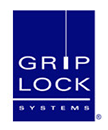Industry News
Secretary Chu Announces More Than $37 Million For Next Generation Lighting
January 17, 2010
Energy Secretary Steven Chu today announced more than $37 million in funding from the American Recovery and Reinvestment Act to support high-efficiency solid-state lighting projects. Solid-state lighting, which uses light-emitting diodes (LEDs) and organic light-emitting diodes (OLEDs) instead of incandescent bulbs, has the potential to be ten times more energy-efficient than traditional incandescent lighting. Lighting accounts for approximately 24 percent of the total electricity generated in the United States today – by 2030, the development and widespread deployment of cost-effective solid-state lighting could reduce electricity use for lighting by one-third nationally. The 17 projects selected today include funding for solid-state lighting core research, product development, and domestic manufacturing.
“The United States must lead in energy efficiency. These solid-state lighting projects will help us significantly cut our energy use, reduce our carbon footprint, and save money,” said Secretary Chu. “This funding will also support the United States as a global leader in this rapidly evolving industry, creating high-tech, value-added jobs.”
The projects selected today address the full spectrum of research, development, and deployment for solid-state lighting (SSL) technologies. These 17 SSL awards will be leveraged with nearly $28.5 million in private industry cost share, for a total project value of more than $66 million. Projects have been selected in the following three areas:
■Core Technology Research ($4 million) – Three projects will focus on advancing the technical knowledge base of solid-state lighting for general lighting purposes. The projects will target improved efficiency and performance with reduced costs, which are all critical to the widespread deployment of solid-state lighting.
■Product Development ($10.3 million) – Six projects will support the development and improvement of commercially viable solid-state lighting source, component, or integrated lighting products. This activity will promote the market introduction of viable SSL products.
■SSL Manufacturing ($23.5 million) – Eight projects will focus on achieving significant cost reductions and enhanced quality by improving manufacturing equipment, processes, or monitoring techniques. These projects will address the technical challenges that must be overcome before prices fall to a level where solid-state lighting will be competitive with existing lighting on a first-cost basis.
This is the sixth round of DOE funding for solid-state lighting core technology research and product development, and the first time that DOE has funded solid-state lighting manufacturing projects. This expanded focus is part of a new DOE initiative to accelerate the adoption of SSL technology through manufacturing improvements that reduce costs and improve quality. These efforts will also play an important role in encouraging U.S.-based manufacturing of solid-state lighting technologies, creating jobs and promoting America’s role as a global leader in energy efficiency.
The projects announced today include:
Core Technology Research ($4.0 million total)
•Cambrios (Sunnyvale, CA)
•University of Rochester (Rochester, NY)
•WhiteOptics, LLC (Newark, DE)
Product Development ($10.3 million total)
•Cree, Inc. (Durham, NC)
•General Electric (Niskayuna, NY)
•Lightscape Materials, Inc. (Princeton, NJ)
•Osram Sylvania Products, Inc. (Beverly, MA)
•Philips Lumileds Lighting Company, LLC (San Jose, CA)
•PPG Industries (Cheswick, PA)
U.S. Manufacturing ($23.5 million total)
•Applied Materials, Inc. (Santa Clara, CA)
•GE Global Research (Niskayuna, NY)
•GE Lumination (Valley View, OH)
•KLA Tencor Corporation (Milpitas, CA)
•Philips Lumileds Lighting Company, LLC (San Jose, CA)
•Ultratech, Inc. (San Jose, CA)
•Universal Display Corporation (Ewing, NJ)
•Veeco Instruments (Somerset, NJ)
The projects announced today are award selections. The final details of the award contracts will be finalized in negotiations between DOE and each grantee.









































